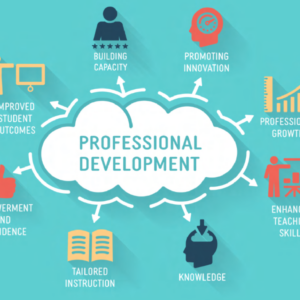 By the 21CLEO Research Team
By the 21CLEO Research Team
Preface
Part of our research process has been to engage the voices of individuals involved in employer-supported education and training initiatives or otherwise impacted by the issues we have been investigating. To this end, we hosted a series of convenings to discuss our findings and invited a group of 12 interested parties who represented a range of backgrounds and experience in the workforce development system to respond to our initial observations, to make sure that we are doing things that were relevant and useful, and to identify things that we had missed or that we didn’t get right.
Participants in the convenings, who we consider our research partners, included working learners, individuals who work directly with front-line workers, adult education practitioners, others who work in the workforce development system, and individuals who work for organizations known to engage in research and advocacy. The practitioners and professionals among this group shared a number of characteristics that made their insight especially valuable. Many were working on innovative projects focused on adult learning and workforce development. Their interest and experience working to improve access to relevant education and training meant that they knew about different innovative initiatives or approaches. They were thus uniquely qualified to respond to our research findings in a series of three convenings, each with a different focus. We described the process that we used to involve working learners in the research process in a blog post called Many Voices: Participants as Research Partners. In this post, we focus on what our research advisors had to say about our findings on the role of supervisors.
In one of our convenings, we focused on the role of the supervisor, since analysis of the working learner interview data had raised our awareness of the importance of the direct supervisor in guiding an employee toward meaningful learning. Prior to the convening, our analysis had suggested that simply offering employer-supported education and training initiatives was not sufficient for persistence in or advancement after completion of a course or training event. Throughout our data, we found examples of working learners noting whether or not they felt encouraged by their supervisors. The supervisors who helped learners leverage training to support job advancement were called out as supportive, as were those who had acknowledged the efforts learners made to persist.
To illustrate our findings about the role of direct supervisors, we wrote two blog posts. The first post highlights two individuals whose direct supervisors provided opportunities for learning and growth on the job and helped the working learner connect what they were learning in a class or course to what they were doing at work. The second blog post tells the story of a third individual who had quite the opposite experience. A variety of issues, ranging from corporate decisions to hostile work conditions on the job waylaid this working learner’s efforts and eventually caused the loss of her job and burn-out.
We shared the blog posts and the findings they described with the individuals who had participated as research partners and asked them to respond to a set of questions.
We received thoughtful and thought-provoking responses from our research partners. Responses have been lightly summarized and edited for brevity and clarity. Because of space limitations, not all responses are shared, but we certainly appreciate the time and effort each participant put into responding.
To a great extent, our research partners agreed with our research findings about the importance of supervisors. Many had similar experiences themselves or had worked with people who had had similar experiences. For example, one research partner commented that “The examples mentioned in the blog are good and offer sufficient detail to support the finding that supportive direct supervisors are critical to the success of learner workers.” Several research partners suggested that the impact of supervisors goes beyond individual working learners. For example, one stated that, “Working in workplace education programs, I have seen the difference that a supervisor makes when they believe in the potential of an employee; but that attitude permeates the workplace because, in my experience, only the same managers and supervisors who support their employees’ learning are the ones who genuinely support workplace education initiatives. I have seen the positive impact that has on employee morale overall.” One research partner commented specifically on the importance of supervisors to immigrant working learners when saying, “it depends on the company and the supervisor styles. Some companies and supervisors are very supportive and some companies continue to underestimate immigrants’ ability in achieving better opportunities.”
Many of our research partners mentioned the negative impact of poor supervisors. One such impact is for the working learner to leave the job. One research partner who is a working learner advisor said, “During my pharmacy job my manager always gave me hard times and discouragement. I was very stressed out, leading me to quit my job.” Another research advisor who works in workplace education noted that “Often, people leave their job because they lack support and/or training from their direct supervisor – not because they don’t like the company or the work itself.” This research partner went on to note that poor supervisors may be a result of inadequate training “Unfortunately, I believe this happens far too often. People get placed in supervisory roles without training on how to lead others.”
The types of skills that are important for good supervisors to have came up many times in the responses of our research partners. These skills include helping working learners to see the potential in themselves and illuminating pathways to promotion. One research partner who works with union training programs said that, “In addition to highlighting the importance of supervisors recognizing skills and talents that the working learner may not see in themselves, it is also important to emphasize that [supervisors] give short-term goals or milestones towards a larger goal; a clear path to upgrading …. Supervisors who help staff see themselves as direct contributors to the mission of the organization is also key and how the training benefits both the organization and the employee.” Another research partner who worked in workplace education made the same point when she commented on a specific example provided in the first blog post about supervisors, “[Ainsley’s supervisor] seemed to really understand how to be an effective supervisor – communicating her observations to Ainsley very specifically, reinforcing positive behaviors about leadership potential. It was also important that she was specific about the things Ainsley could do to show interest and become a candidate for promotion.”
One of our research partners disagreed with the findings that were illustrated in Destiny’s experience in the second blog post about supervisors. As he explained, “I think the case of Destiny is not, by itself, sufficient to support the claims made in the blog. We know that decisions made by corporate managers who do not know the employee and racial and gender bias have a negative impact on careers; however, Destiny’s story has too many variables that, in my opinion, make it difficult to draw clear conclusions. My feeling is that, at most, her story shows that engaging in learning is not in itself sufficient to be promoted.”
Many of our research partners described the changes they’d like to see in the training and roles for supervisors and managers. One commented that mentor training would be helpful and said, “Considering your findings, mentor training would likely improve the relationship between supervisors and the rest of the staff. Given that closer relationship, they would also be more likely to know that the staff are planning to attend additional training – even if management fails to inform them of this upcoming project.” Similar to mentor training, a relationship between supervisors and working learners is important. One of our research partners explained that, “[A] direct relationship with the worker is the key. Group meetings and one on one meetings are very important to tackle problems, learning and overall growth.” Another suggested that accountability should be reciprocal, that “Managers [and supervisors] also need to be held accountable from bottom up and top down. I turn in a self-evaluation to my manager, can’t there be a self-evaluation from the manager on down?”
One of our research partners who is a working learner advisor summed it up, “In the end, we need employers who see great potential in employees. Plus, employers who are not good supervisors need to be trained better and give the right people the best opportunities, like better raises and understanding of a what makes a great employee.”
Conclusion
The responses from our research partners have enriched our understanding of what it means to participate in education and training initiatives in the 21st century. Each context for learning is different, and each learner has different experiences and purposes for engaging in learning. But across our data, we’ve seen a commitment and enthusiasm for continued learning among the working learners we were privileged to interview, as well as those interested parties who shared their wisdom and experiences with us. We are grateful for the time and insights of everyone we’ve talked to.
Special thanks to our research partners:
Maria Luisa Castaneda, 1199 SEIU Home Care Industry Education Fund
Orlando Cazerez, Center for the Future of Arizona
Ashlei Jones, Independent learner-advisor
Conzolo Migliozzi, 1199 SEIU United Healthcare Workers East
Huda Muhammed, Lutheran Immigration and Refugee Service
Cherie Phipps, The Western States Chain Grocers Association
Federico Salas-Isnardi, Mayor’s Office for Adult Literacy (MOAL) in Houston
Muhammad Shafique, Independent learner-advisor
Iftu Usha, Independent learner-advisor



